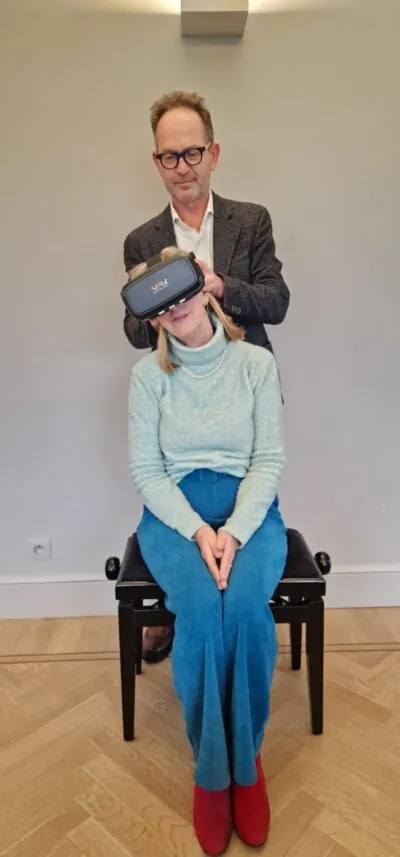
Researchers at the University of Antwerp and the European Institute for Otorhinolaryngology have developed a virtual reality (VR) treatment that is just as effective as the current gold standard therapy for Mal de Débarquement Syndrome (MdDS), a rare and highly disabling balance disorder.
MdDS patients feel as if they are constantly rocking, swaying, or bobbing—similar to being on a boat that never stops moving. The condition can last for months or years, severely disrupting daily life and often forcing patients to give up work.
Until now, the therapy often used has involved a bulky optokinetic stimulation (OKS) booth, available in only a handful of clinics worldwide. Patients frequently had to travel internationally for access—ironically, travel itself can worsen MdDS symptoms.
In a randomized clinical trial of 30 patients, the Antwerp team compared the OKS booth to a newly developed VR smartphone application that simulates the same visual therapy. Patients in both groups showed equally substantial improvements in symptoms such as dizziness, fatigue, nausea, and “brain fog.” Benefits were sustained for at least four weeks.
“This is a breakthrough for patients,” says Prof. Dr. Floris Wuyts, senior author of the study. “Our virtual reality app performs as well as the large OKS booth, but is accessible anywhere in the world. This opens the door to remote treatment and reduces the need for costly, risky travel.”
Lead author Catho Schoenmaekers adds, “For many patients, MdDS is life-changing. With this VR solution, we can bring treatment directly to their homes, offering hope where options were limited.”
The study, published in Neurotherapeutics, marks the first non-inferiority trial showing that VR-based optokinetic therapy can match the established clinical method.
Contact: Prof. Floris Wuyts, [email protected]
